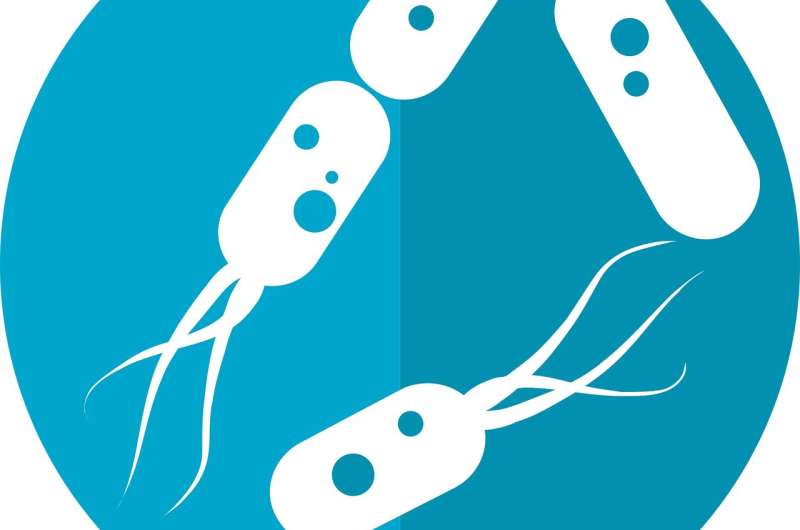January 30, 2024 report
This article has been reviewed according to Science X's editorial process and policies. Editors have highlighted the following attributes while ensuring the content's credibility:
fact-checked
peer-reviewed publication
trusted source
proofread
Study finds commensal gut bacteria develop resistance in response to antibacterial treatment

An international team of microbiologists and immunologists has found that commensal gut bacteria develop resistance to antibacterial therapies for infections. In their study, reported in the journal Science Translational Medicine, the group monitored and tested the gut biomes of patients undergoing long-term antibacterial treatment for tuberculosis.
Many types of bacteria are developing resistance to antibacterial therapies. This represents a threat to future treatment options, and research involved in finding alternatives is ongoing.
Prior research has also shown that antibiotic therapies also kill off commensal bacteria, also known as good bacteria, such as those in the gut that help with digestion. In this new effort, the research team wondered if beneficial bacteria might develop a resistance to antibacterial agents like invasive bacteria are doing. To find out, they recruited 24 people undergoing treatment for tuberculosis.
Treatment for TB involves administering antibiotics for approximately 20 months, which means also killing off commensal gut bacteria, leaving patients to deal with constant diarrhea, inflammation of the gut and eventually, susceptibility to infection by bad gut bacteria when the treatment ends.
The researchers tested the gut biomes of the patients over the course of their treatment, via samples collected for study under a microscope. The research team found that slowly, over time, beneficial bacteria developed resistance to the antibiotics and eventually returned to normal levels in the gut.
A closer look at the bacteria showed that they had mutated to resist the types of antibacterial agents used to treat the patients. They also found evidence that the newly evolved good bacteria were better able to compete against the bad bacteria, suggesting that the antimicrobial resistance mutations can have paradoxically beneficial effects by promoting microbiome resilience.
More information: Shakti K. Bhattarai et al, Commensal antimicrobial resistance mediates microbiome resilience to antibiotic disruption, Science Translational Medicine (2024). DOI: 10.1126/scitranslmed.adi9711
Journal information: Science Translational Medicine
© 2024 Science X Network

















